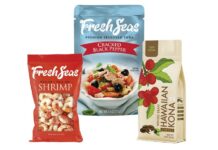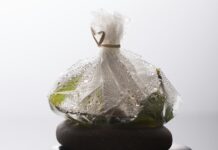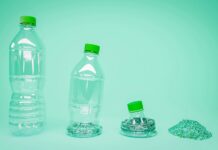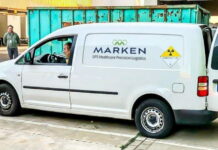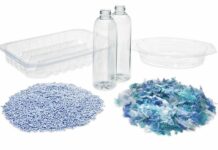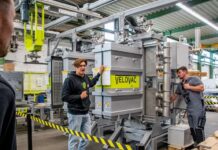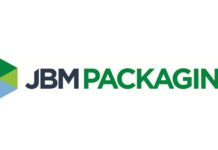Nespresso announces the launch of the first coffee capsules on the market made using 80% recycled aluminium, as part of the company’s continued journey towards circularity, going further to minimize waste and maximize reuse of product materials. The move closely follows the introduction in March of new machine boxes in fully recyclable packaging made of 95% recycled material.
“We are constantly challenging ourselves to improve the sustainability and circularity of our operations, including the way we source, use, and recycle materials. Reaching 80% recycled aluminium in our capsules is a significant milestone, and something we have worked hard to achieve together with our suppliers,” said Jérôme Pérez, Nespresso Head of Sustainability.
Aluminium is infinitely recyclable and is one of the most widely recycled materials in the world. Recycled aluminium requires less energy to produce than a virgin product, so it is well-suited to use in a circular business model. Aluminium also optimally protects the freshness and aromas of high-quality coffee, providing a perfect barrier against oxygen, light and humidity. Nespresso has always been using aluminium for its capsules for these reasons. Made of a thinner aluminium foil, each new capsule is produced using 9.2% less aluminium material, and is therefore 8% lighter.
The first ever coffee capsules made from 80% recycled aluminium are the Original Line Master Origin Colombia coffee. They were introduced in March this year in selected countries and will continue to be rolled out from July onwards. By the end of 2021, Nespresso aims to have the full Original Line and Vertuo ranges of coffee capsules made using recycled aluminium.
The launch of the capsules follows the introduction of new fully recyclable boxes for Nespresso machines, made from 95% recycled material, earlier this year in March. By the end of 2021, Nespresso targets to have all machines sold in this new packaging.
“These new initiatives take Nespresso a step closer to creating a more circular business model,” said Jérôme Pérez. “We will continue to work towards increasing the proportion of recycled aluminium in our coffee capsules and to drive up the recycling rate of our used capsules, making it as easy as possible for our customers to recycle them.”
Increasing recycling rates
Nespresso has also reached a global recycling rate of 30% and will continue to work to increase it. Since 2014, the company has invested over 185 million CHF in its recycling programs globally, with over 100’000 collection points in 53 countries.
“Consumer participation is central to success, so we are incredibly grateful for the enthusiasm our customers have shown in achieving our current recycling rate. We aim to now build on this positive momentum. We will continue our efforts to promote recycling among consumers, working towards achieving our ultimate ambition of recycling all of our capsules,” said Pérez.
Recycling is a collective effort, and increasing recycling rates is dependent on four key elements:
Further strengthening the communication to consumers to raise awareness and drive participation;
Working with authorities to integrate capsule recycling into collective recycling schemes;
Increasing the number of collection points;
Integrating other portioned coffee manufacturers into its recycling scheme to improve availability and accessibility of aluminium capsule recycling.
“These initiatives are an integral part of Nespresso’s ongoing commitment to the responsible use of aluminium. As announced in November 2018, we will continue to work alongside our partners to use aluminium compliant with the Aluminium Stewardship Initiative (ASI) standard for responsible and sustainable aluminium, whether it is sourced from bauxite or from recycled material,” concluded Jérôme Pérez.
Key milestones in Nespresso’s recycling and sustainable packaging journey:
In 1991, Nespresso launched its first recycling system, which now features a global network of over 100’000 capsule collection points across 53 countries. Since 2009, consumer access to recycling options has increased from 24.3% to around 91% in 2019;
Nespresso has been working since 2009 with the International Union for Conservation of Nature (IUCN) and other stakeholders to create a sustainable and responsible aluminium value chain. This led to the formation in 2012 of the Aluminium Stewardship Initiative (ASI), which developed the first standard for sustainable and responsible aluminium;
Nespresso worked with other brands such as Caran d’Ache, Victorinox and most recently, Vélosophy which returns in May 2020,to create iconic “Second Life” objects using recycled capsules that bring to life the recyclability of aluminium and highlight the benefits of recycling.
In 2018, Nespresso announced it would be the first company to source sustainable aluminium compliant with the ASI standard through its partnership with Rio Tinto. The company is working to ensure its full value chain aligns with the standard;
In 2019, Nespresso invited other portioned coffee manufacturers to join its recycling scheme to improve availability and accessibility of aluminium capsule recycling, with JDE in France and Café Royal in Switzerland the first partners to sign up;
Some Nespresso machines include Post-Consumer Recycled Plastics (PCRP) and Nespresso is continuously looking for new ways to increase the recycled material used in their manufacture;
Nespresso launched new outer packaging for its machines in March 2020, which is 100% recyclable and made of 95% recycled material.








